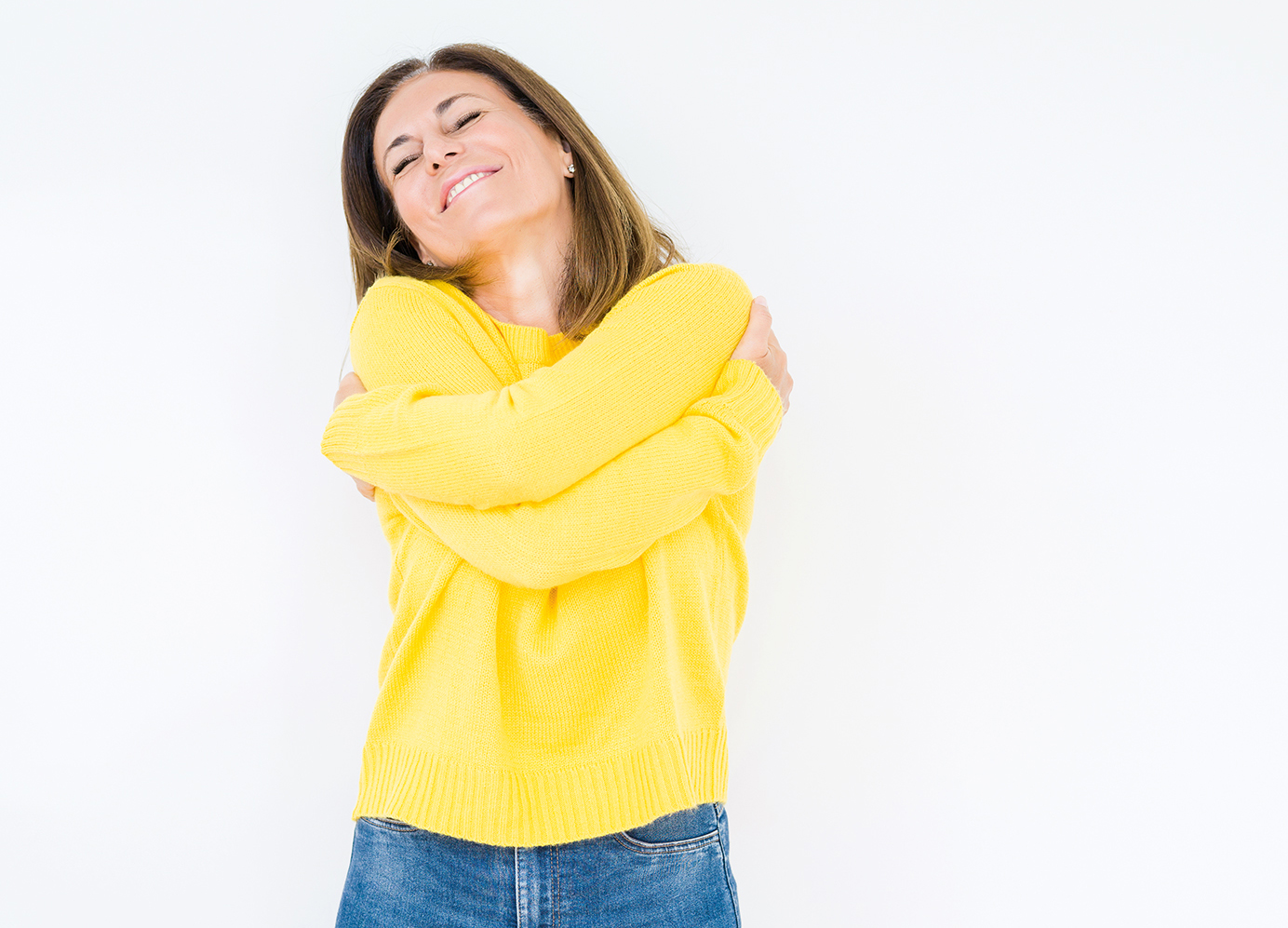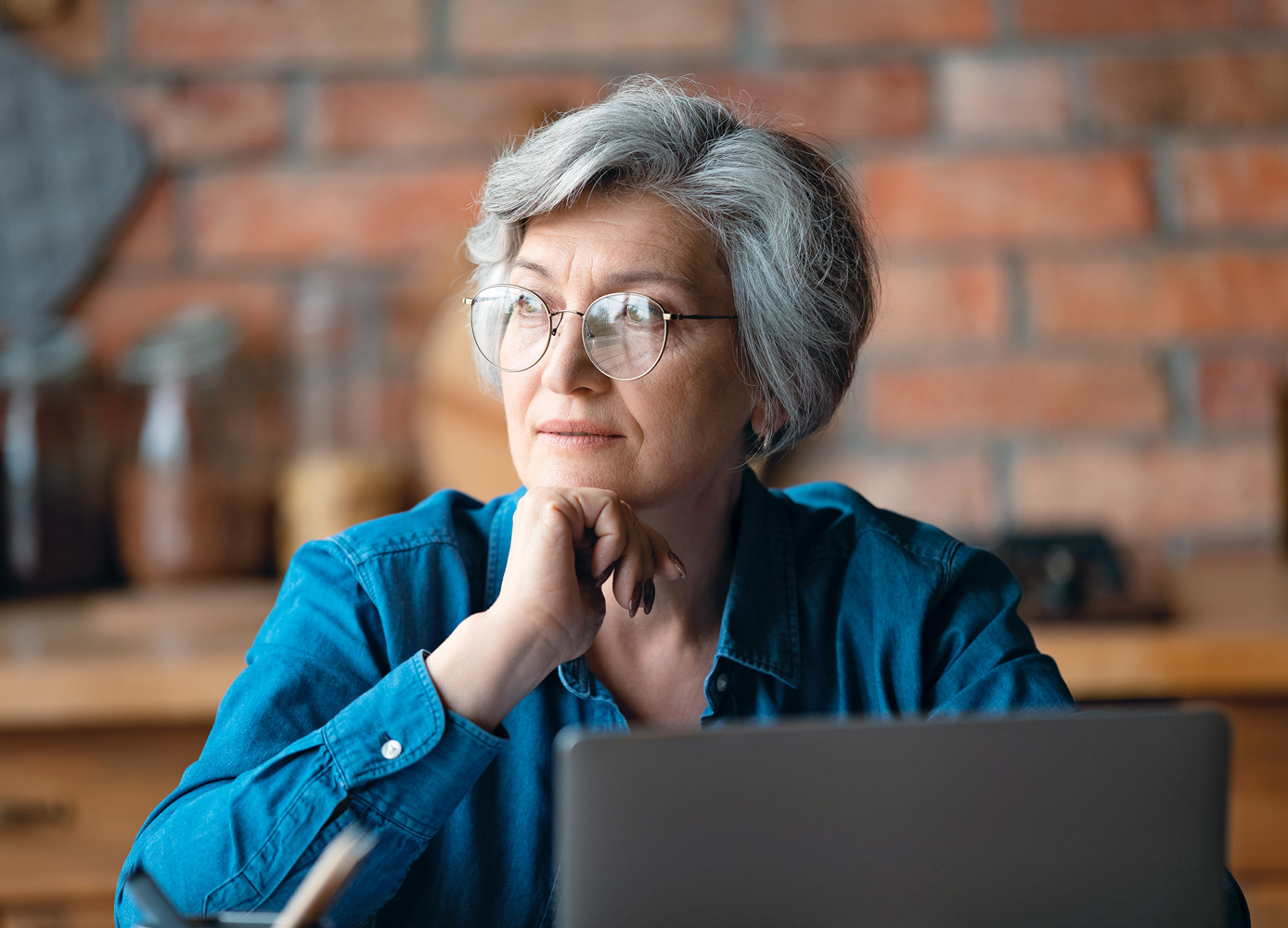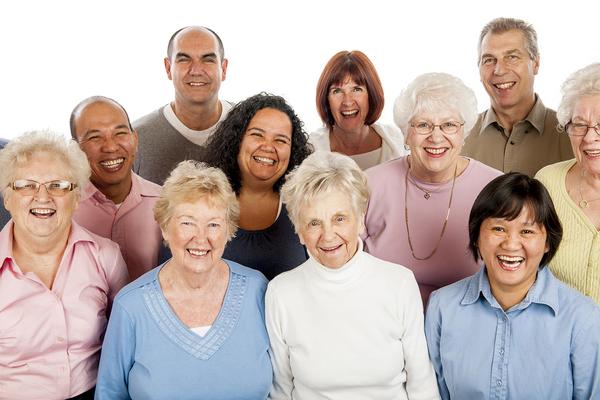Practising mindful self-compassion can lower stress and boost well-being
By Wendy Haaf
Not so long ago, if Suzanne Boles—a London, ON, freelance writer and writing instructor—made a mistake, her inner critic would give her a dressing-down. “I would think, that’s stupid—I’m stupid,” she says.
Many of us share that instinct, thinking that, after all, being hard on yourself is what motivates you to keep trying harder to avoid mistakes, achieve a goal, and maybe even become a better person. However, according to a growing body of research, not only is that not true, but self-judgment in fact seems to do just the opposite.
As a society, we seem to have begun to catch on to the fact that being kind to others is good for our own mental and emotional health. Jamie Gruman, a professor and research fellow with the Gordon S. Lang School of Business and Economics at the University of Guelph (ON) and a founding member of the Canadian Positive Psychology Association, outlines some studies supporting that notion in Boost: The Science of Recharging Yourself in an Age of Unrelenting Demands (Information Age Publishing, 2018), a book he co-authored.
In one study, for example, when “researchers asked people to perform an act of kindness for someone else or themselves, people who acted kindly towards others had higher senses of well-being,” he explains. In another experiment, researchers measured participants’ happiness levels before giving them a small amount of money to spend either treating themselves or doing something for another person, and then rechecked happiness levels at the end of the day. “Those who used the money to do something for someone else were happier,” Gruman says.
These examples are just two of many—conducted in a number of countries—demonstrating the same effect. “It’s a worldwide phenomenon; it doesn’t seem to be culturally bound,” Gruman says. Overall, he says, research has shown that kindness is connected with “better psychological health, physical healthy, lower [premature] mortality, and better relationships.”
While being kind to ourselves doesn’t generate the same benefit, a trait known as “self-compassion” does this and a good deal more. And “it’s not like having size-eight feet—it’s a skill that can be taught and cultivated,” says Patricia Williams, a Victoria art therapist, certified counsellor, and trained teacher of a program called “Mindful Self-Compassion.” “There are now thousands of research articles supporting its effectiveness for our well-being, both physical and psychological,” she says.
Furthermore, emerging evidence suggests that mindful self-compassion may be particularly helpful for coping with situations that become increasingly common after age 55.
What Is Mindful Self-Compassion?
“According to Kristin Neff [a US pioneer in the field], there are three aspects to mindful self-compassion,” Gruman explains. One is learning to treat yourself with the same kindness that you would a good friend, particularly when you are struggling or suffering. Two: Under those circumstances, it involves reminding yourself “that your experiences are part of the larger human experience—everyone goes through this,” he says. The third component is where mindfulness comes in; it involves “holding painful thoughts and feelings, recognizing them, and observing them as you would a rat in a maze,” Gruman says. He cautions, however, that it’s not always appropriate to let yourself off the hook completely, citing the example of shrugging off a failing grade due to not studying.
One of the merits of being able to practise mindful self-compassion, Williams explains, is that it helps calm your brain’s fight-or-flight response, giving the more logical prefrontal cortex (which, among other things, facilitates good decision-making and the ability to find humour in a situation) a chance to kick in. And that means you’re more apt to stop yourself from ruminating or catastrophizing, which can ultimately spiral into depression and other problems.
You can also think of each of the three elements of mindful self-compassion in terms of their dark twins.
“The opposite of self-kindness is self-criticism, self-judgment—that harsh inner critic,” Williams says. The negative pole of common humanity is “this perverse inclination to go to feeling completely alone when we’re suffering—‘I’m the only person who’s made this terrible mistake,’” she adds.
The flip side of mindfulness, according to Williams, is when we avoid a difficult emotion (for instance, by doing things that numb it), overgeneralize it, or overidentify with it (“I’m feeling bad, so I must be a bad person,” or “I’m feeling awful, life is awful, this is unbearable,” for example).
It’s also important to understand that self-compassion is distinct from self-esteem. “Bullies can have high self-esteem,” Gruman points out. On the other hand, self-compassion is linked with self-esteem, he notes. “Self-esteem is a fair-weather friend,” Williams says. “Self-compassion is there for you when things get tough. And the privilege of living longer means we’re facing more loss,” and thus, further tough times.
While it obviously varies from one person to another, the ability to apply the principles of self-compassion, particularly when life is difficult, doesn’t necessarily come naturally, in part because of how we’re socialized. “We don’t believe we should give ourselves compassion,” Suzanne Boles observes. “We think of that as being selfish.” Consequently, instruction and practice may be needed to overcome this tendency.
The course developed by Kristin Neff and Chris Germer (the psychologists who co-founded the Center for Mindful Self-Compassion, an international non-profit) is an eight-week group program mixing informal exercises, meditation, and discussion to arm graduates with tools for challenging unhelpful core beliefs, letting go of feelings of shame, and coping when they’re feeling overwhelmed.
What Are the Benefits?
Neff’s original research found that people with higher levels of self-compassion had “less depression, less anxiety, and higher satisfaction with life,” Gruman says.
Since then, studies have linked self-compassion with a host of other assets. “There is research showing that [when people are more self-compassionate], they’re more likely to seek medical treatment when it’s needed; they’re more likely to use assistive devices, such as walkers, as needed; they’re more likely to engage in proactive health behaviours,” Williams says. “They have higher health self-efficacy, which means that they feel confident in carrying out whatever is needed to take care of their health. So they eat better, they exercise more, they sleep better, and if they have a chronic disease, they attend to it better.”
Evidence suggests that self-compassion can also buffer one both mentally and physically against some of the uncontrollable stresses that crop up more frequently in later life. Researchers at Concordia University in Montreal were interested in finding out whether stressors that become more common in older age were associated with higher levels of cortisol—the stress hormone that, when it remains chronically elevated, is thought to exert extra wear and tear on the body. In a smaller sub-project of a Montreal study on health and aging, in which participants are community-dwelling adults 60 and older, “we assessed how self-compassionate they were,” explains Heather Herriot, a doctoral candidate in psychology at Concordia. “The three stressors that we chose to look at were regret intensity—if they had a life regret and felt some negative emotions related to it; how well they were able to do daily tasks; and physical health problems they were dealing with.” The results? “Essentially what we found is that people with high levels of stressors and with lower levels of self-compassion had high cortisol levels,” Herriot says. “But if people had these high stressors and were more self-compassionate than others in the study, they were protected—they didn’t have elevated cortisol levels.”
The fact that stress can increase emotional and psychological distress and exacerbate pain probably explains—
in part, at least—findings from other studies showing that “self-compassion helps people cope with pain more effectively,” Williams says. “Even when people report poor health, poor mobility, and higher levels of pain, they still have higher levels of well-being than people with low self-compassion facing those same things.”
Other research suggests that self-compassion also lowers the psychological distress associated with the diagnosis and treatment of diseases such as breast cancer, and cushions against caregiver fatigue. “Self-compassion is strongly linked with resilience in general, but also adapting to change,” Williams says.
Self-compassion may also strengthen and deepen one’s sense of purpose, which research has tied to higher levels of psychological and physical well-being, as well as to increased longevity. “There’s a strong link with having a sense of purpose, a sense that one’s life has meaning,” Williams says. Additionally, “it supports self-acceptance and personal growth.”
Still, some people resist the idea of silencing our severe mental martinet, thinking that it somehow spurs perseverance and success. Quite the contrary, as it turns out. “There’s research that shows that when we motivate from that kind and compassionate place, we are willing to fail more; we’re willing to try more. Motivation via self-compassion is more durable. People are more able to quit smoking, for example, and they stick to diets better,” Williams says. By contrast, “when you’re motivating with harsh criticism, the motivation is brittle, and when it ‘breaks,’ you give up.”
Not only does self-compassion help make us better workers, Williams argues, but it fosters happier, healthier relationships. “It makes us better partners,” she says. “We’re more willing to apologize and more willing to forgive.”
When Suzanne Boles signed up for a course in mindful self-compassion, she did so because it was offered by a therapist with whom she had taken an earlier series of classes in mindful cognitive behavioural therapy. “I didn’t know what to expect,” she recalls.
She learned to challenge her inner dialogue by asking herself whether she’d say those same things to a good friend. “That was huge,” she says. “I’ve learned a lot about myself. Self-compassion is not a selfish thing—it makes you stronger.”
Her new skills were put to the test when, partway through the course, the COVID-19 pandemic reached Canada. “Right now, during this particular time, it’s very helpful,” she says.
Photo: iStock/AaronAmat.






